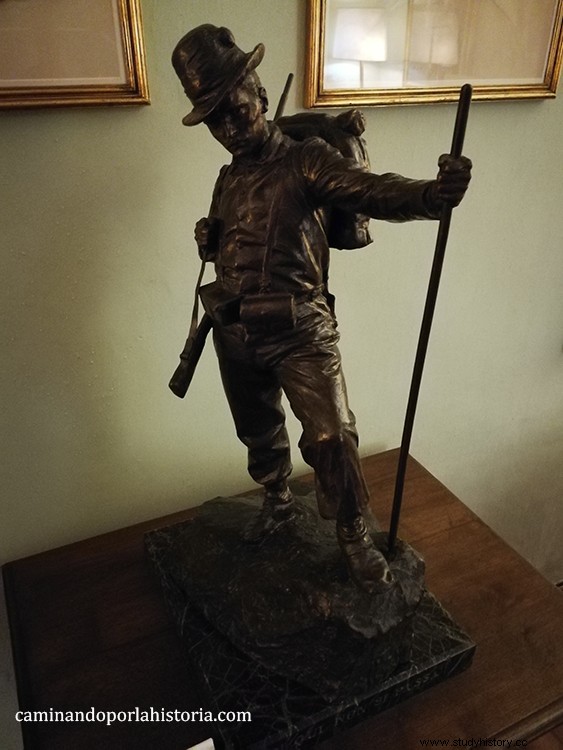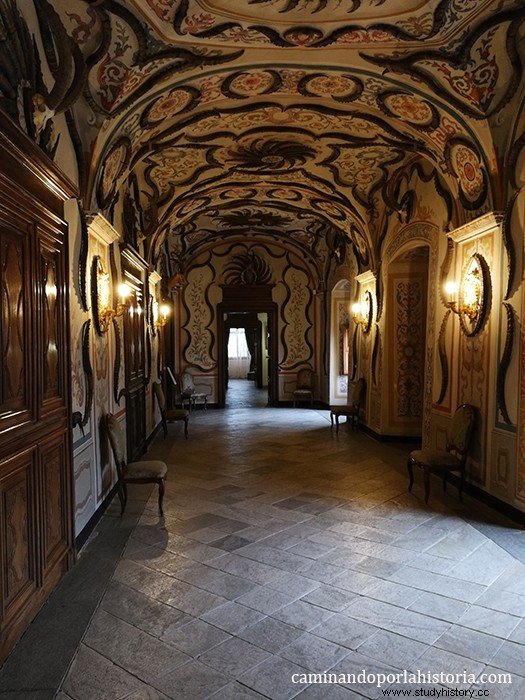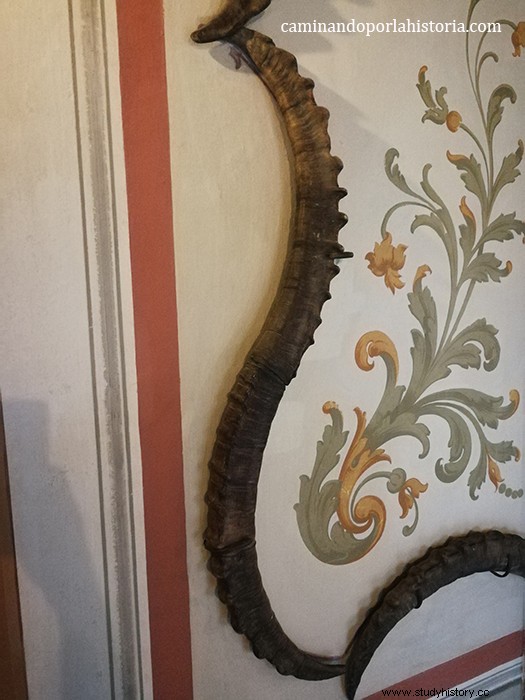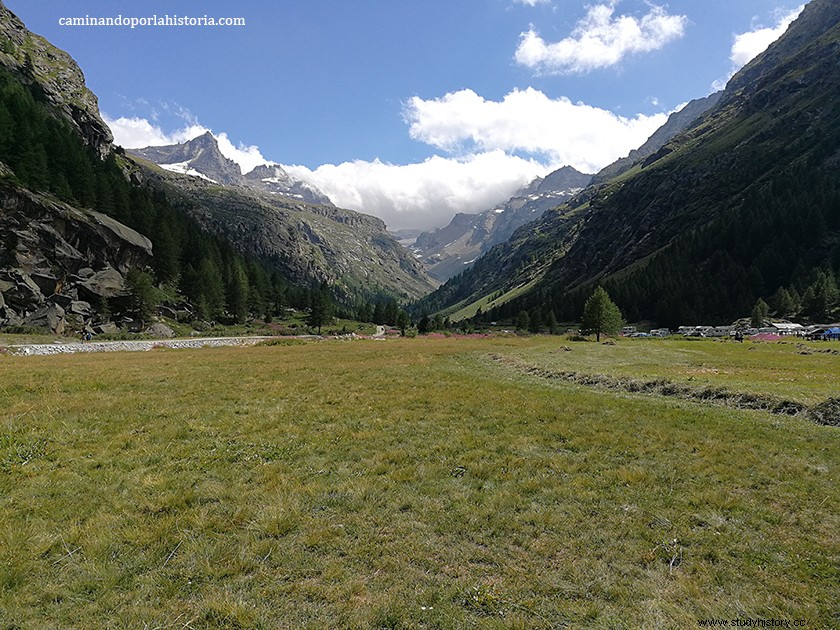
The castle of Sarre is located in the alpine valley from Aosta, just over 15 kilometers from the capital that gives its name to the valley. This castle is located on a small hill in the small town of Sarre, from which it perfectly overlooks the Dora Baltea river basin.
Brief history of the Castle of Sarre
The oldest remains found on the hill belong to a fortification from the 12th century. Curiously, it has been found that in 1242 it belonged to Amadeo IV of Savoy, something that foreshadowed the story that follows.
From that 13th century there is hardly any evidence of its inhabitants, until the beginning of the 18th century in which we find Jean François Ferrod. The latter, a rich industrialist of the time, who dedicated himself to the mining operations in the area and through which he amassed a fortune that served him for the purchase of the Castle of Sarre in 1708 and its subsequent remodeling. Precisely from this time is the castle that we can visit today, since absolutely nothing remains of the old medieval. Although this remodeling was of little use to Jean François, since after it the price of his holdings plummeted, leading the industrialist to ruin. Shortly after he was imprisoned and will die in the fortress of Bard in 1730.

Victor Emmanuel II
After this death, the castle changed hands several times, until 1869 when it was acquired by the first king of Italy, Victor Emmanuel II. Therefore the castle after six centuries of history will return to the hands of the House of Savoy. From this moment the story of the horns begins, although I must make a subsection. Those who have entered the reading looking for a soap opera, I am sorry to have disappointed you. Although I think lovers of history and nature will enjoy the rest of the story.
Victor Emmanuel II
Before talking about the first king of Italy, it is necessary to introduce the main protagonist of the story of the Castle of Sarre. This is the Ibex, in other words the wild goat of the Alps, since it is the only mountain range in the world in which they are present. It is necessary to point out that a kind of belief was installed in the area by which various parts of the ibex's body had medicinal and therapeutic properties. For this reason, talismans were even made with certain bovid bones, for protection against death. This led this animal, whose horns could measure more than a meter, to practically disappear at the beginning of the 19th century.

Specimen of male ibex
Going back to Victor Emmanuel II we must say that he was an accomplished hunter. His favorite hunting area was the valleys near the castle of Sarre, specifically those of Cogne and Valsavarenche. It is not for nothing that one of the most important mountain refuges in the Alps is preserved in the area, named after the first king of Italy. Bearing in mind that, especially in the second half of the 19th century, the only area where ibexes were kept was precisely in the named valleys, Victor Emmanuel II decided to create the Gran Paradiso Royal Hunting Reserve in 1856.
A few years later, as has been said in 1869, he settles definitively in the castle of Sarre, which he reforms with a new tower and especially the stable area, much needed for the purpose of hunting. With regard to our protagonist, the ibex will have a relatively quiet time, in short, if they could only be hunted by the king and his entourage, his population would increase in number.
Humberto I
In 1878 Victor Emmanuel II died, his son Umberto I of Savoy succeeded him in office. From this moment on, the story of our friend the ibex will be in danger again. The cause is the indiscriminate hunting that this new king initiates, the reason is the renovation of the halls of the Castle of Sarre. In fact, being the only one with access to the royal hunting ground must have been a kind of perverse pleasure, in short, the belief in the healing powers of the animal was still valid.

Figure of Humberto II in full hunting
I have to admit that this part of the visit is quite unpleasant, and more so for a nature lover like the one who subscribes. There are several rooms and corridors adorned with the horns of the male ibex, but the females also have a place in the massacre of Humberto I. With the images that you will see below, there are really no words, definitely, what bad taste the second king of Italy.

One of the corridors adorned with male ibex horns

Detail of a horn

The females also had the "right" to adorn the royal rooms
His reign lasted 22 years, until he was assassinated in the summer of 1900 by an anarchist in the city of Monza. Possibly thanks to this murder we can continue to enjoy the ibex in the alpine mountains.
Victor Emmanuel III
Fortunately, the last king of Italy inherited neither his father's decorative taste nor, to a certain extent, his grandfather's passion for hunting. Although possibly also the time in which he reigned he should not have had so much free time, nor easy access to the summer residence, at least in the period of the Great War.
If in the year 1900 the ibex was about to disappear, after the First World War in the year 1922, Victor Emmanuel III decided to sell his hunting territories to the Italian government. The reason for the institution of the first National Park in Italy, its name Gran Paradiso, by the way this name is a great success.
Gran Paradiso National Park.
Undoubtedly a true jewel of nature, its more than 70,000 hectares are full of ibex, which are easy to spot by the way. But obviously they are not alone, as they are accompanied by chamois, deer, marmots, a large number of birds and even predators such as wolves and lynxes.

That said, an authentic paradise, in this case the entrance to one of Víctor Manuel II's favorite places, Valsavarenche.
Obviously apart from spectacular mountain landscapes with peaks above 4,000 meters, rivers, waterfalls, huge fir forests and a wide etcetera that may not be relevant. But I do not want to miss the opportunity to applaud the decision of Víctor Manuel III, the protection of the ibex and its horns, has been worth a paradise.
